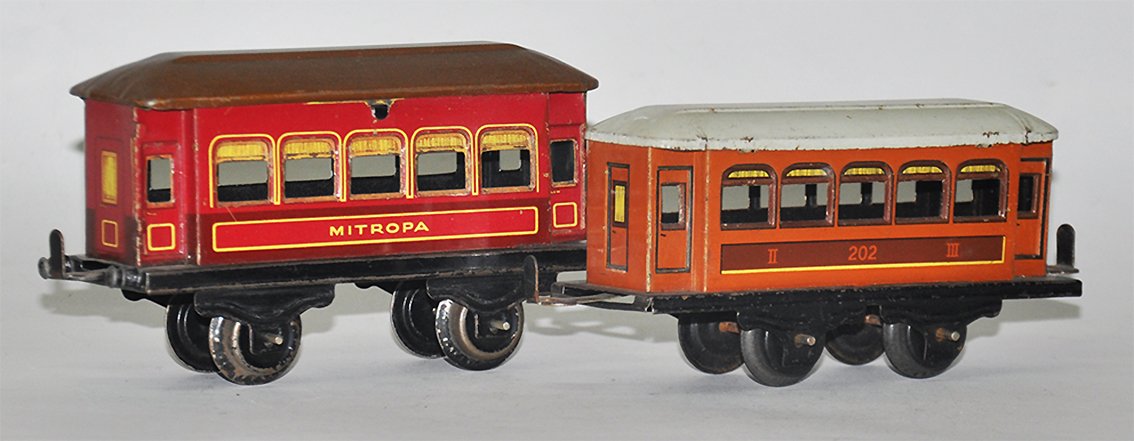
Heller & Schiller (Husch)
Description
Producer of tinplate trains, cars, areoplanes, 1930-1945
In 1925 Viktor Heller and Ernst Schiller bought a tin toy factory in Oberleutensdorf (nowadays Horni Litvinov) in Bohemia, Czechoslovakia after the death of its founder, Viktor Schlesinger. In 1930 they began producing 0 gauge trains, at first using tools bought in Germany (possibly from Bub), soon followed by trains of their own design, under the name Husch. The motive power consisted mainly of steam outline locos in clockwork and electric; there was only one electric outline loco, also available in clockwork and electric. 8 Volt locos were made from 1931; in 1934 the production of 20 Volt locos began. The rolling stock consisted of four- and eight-wheeled coaches (which were only sold in complete sets with an engine and track) and four-wheeled goods stock, which was available seperately. There was one eight-wheeled goods vehicle, a timber truck, for which two coupled tender chassis were used. All trains were made from lithographed tinplate. Husch also produced a number of accessories: stations, crossings, signals, watchman’s huts, lamps, a bridge and a buffer stop. Besides trains and accessories, Husch also made tinplate cars and aeroplanes. When Bohemia was annexed by Germany in 1938, Heller and Schiller, being Jewish, were disposessed and the factory taken over, first by Oscar Wildner and then from January 1940 by Kurt Schmidt & Co. The production of toy trains was continued, but the rolling stock was now fitted with Märklin buffers and with a copy of the Kraus coupling instead of the simple hook coupling previously used. The factory finally closed down for good in 1945.
As to the fate of Heller and Schiller, one story has it that they emigrated in 1938 and returned shortly after the war to reclaim their factory, but were murdered, not because they were Jewish, but because they were German (the postwar Czech government was expelling all German-speaking people, which was accompanied by mass killings). However, a granddaughter of Ernst Schiller stated in 2017 that her grandparents died in a concentration camp, the fate of Viktor Heller and his wife being unknown.
Share:





